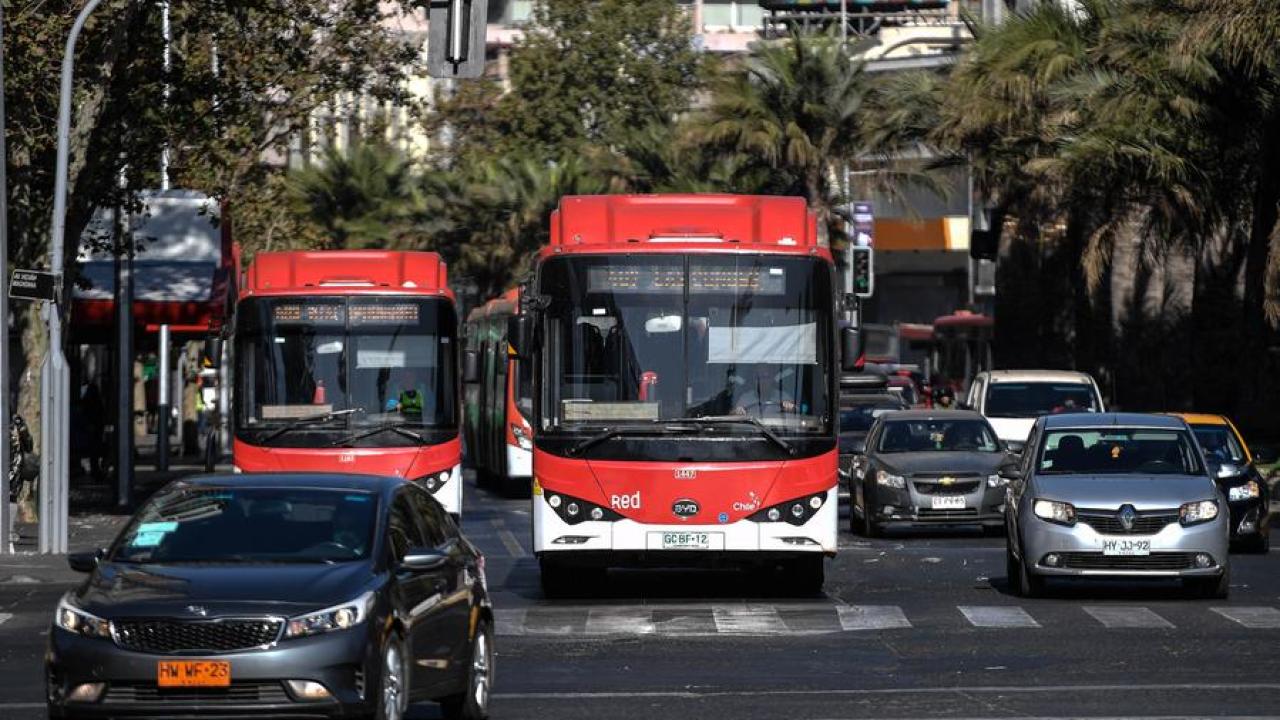
It is projected that by the end of the current government in March 2026, most of Chile's regional capitals will have electric buses. To date, the capital has 2,480 electric machines.
Santiago, the capital of Chile, is the city outside of China with the most electric buses in public transport, which has transformed the South American country into a world reference for electromobility, thanks to its State policies that ensure the participation of investors and international cooperation, led by China.
In November 2017, the first electric buses began to circulate in Santiago on Red Movilidad, the metropolitan area's public transport system, and a year later, the first fleet of 100 buses was added to the capital's system.
After three different presidential governments, the Santiago Metropolitan Region now has 2,480 electric machines, in addition to 150 distributed in the cities of Antofagasta, La Serena, Coquimbo (north), Rancagua and Valparaíso (center).
"Taking the lead has allowed us to show that a modernization of public transport, such as the one carried out in Santiago, could be done by any other city as long as it takes up the flag and the baton with the energy and professionalism that has been done in Chile," Chilean Minister of Transport and Telecommunications Juan Carlos Muñoz told Xinhua .
The official stressed that the Chilean capital is the city outside China with the most electric buses in its public fleet. According to official data known to Xinhua, Chile leads this list followed by Delhi, India, with 1,650 buses, and the Colombian capital of Bogota, with 1,486 electric machines.
"The country has taken on decarbonisation commitments as a State project that transcends the Administration. Being carbon neutral by 2050 and by 2040 all buses operating in Chile must be zero emissions," explained Muñoz.
The minister projected that by the end of the current government, in March 2026, most of Chile's regional capitals will have electric buses.
With the latest tender for transport in Santiago, 1,267 electric buses will be added by 2025 and the Chilean capital will complete 50 percent of its fleet as electric.
It is also accompanied by the strengthening of the infrastructure, because the city will increase its current number of electric bus terminals from 28 to more than 50, in addition to improvements to bus stops.
"This is the largest tender for electric buses ever held in Latin America and also worldwide, in 2024, for electric buses," said Metropolitan Public Transport Director Paola Tapia at a press conference.
The official added that "today we have become a benchmark not only in Latin America, but worldwide in electromobility."
Tapia recalled that, according to studies, after six years of operation of electric buses in the capital, an electric bus terminal records 43 percent less polluting emissions and 50 percent less noise compared to a diesel terminal.
All electric buses used in Chilean public transport are of Chinese origin, as the companies that have won the tenders have preferred the technology from the Asian country.
"We ask for buses that meet certain requirements, attributes, serviceability, and in the industry it is the operators who submit the offers, who decide what type of bus they are going to buy," explained the Minister of Transport.
Muñoz stressed that Chile has allowed the authorized Chinese cargo format to begin operating, thereby "opening up an important part of the market."
"The experience we have had is increasingly positive," he stressed, adding that users are very satisfied with the buses of Chinese origin.









